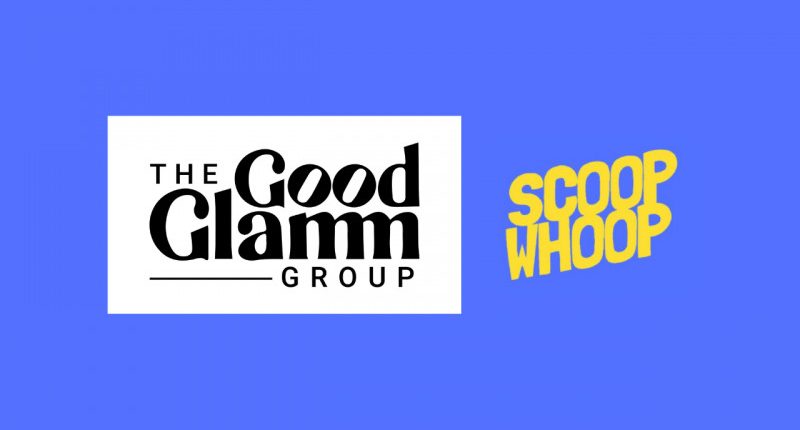Good Glamm Group, the parent company of direct-to-consumer (D2C) beauty and personal care brand MyGlamm, has acquired ScoopWhoop, the Delhi-based digital media and lifestyle content platform, in an all-cash deal.
The financial details of the deal were not disclosed.
This also marks Good Glamm Group’s venture into the content-to-commerce segment in the men’s grooming category. It has already made several acquisitions this year, including commerce platform POPxo, influencer marketing platform Plixxo, BabyChakra, and The Moms Co.
Good Glamm Group said that it plans to invest ₹500 crores in the $1.5 billion strong men’s grooming category, adding that it is building and buying brands that make male personal care products. For now, it will leverage its content-to-commerce capabilities to launch them online and offline across the country.
The acquisition will enable the Good Glamm Group to generate an aggregate of 3.5 billion monthly impressions and have over 150 million unique users through its media division. It will also help the Good Glamm Group, which aims to build a content-to-commerce platform for the burgeoning male grooming and personal care segment.
The eight-year-old ScoopWhoop, founded by Sattvik Mishra, Rishi Pratim Mukherjee, and Sriparna Tikekar, is known to create lifestyle and pop culture content across its online, mobile, and social channels. Its digital assets generate 1 billion monthly impressions and engage over 100 million users. It targets individuals aged between 13 and 35 years, and over 60% of its users are men.
Post-acquisition, it will continue to work as an independent brand and media house within the Good Glamm Group. Additionally, all investors except Kalaari Capital will exit Scoopwhoop, and Kalaari will invest further in the Good Glamm Group.
2020 and 2021, while rough for the average joe, have been years of unprecedented growth for India’s startup industry, which is maturing quite gracefully. This has led to many accusations over the past few months, and Glamm acquiring ScoopWhoop is just one example of inorganic growth in these times of unbound opportunity.
